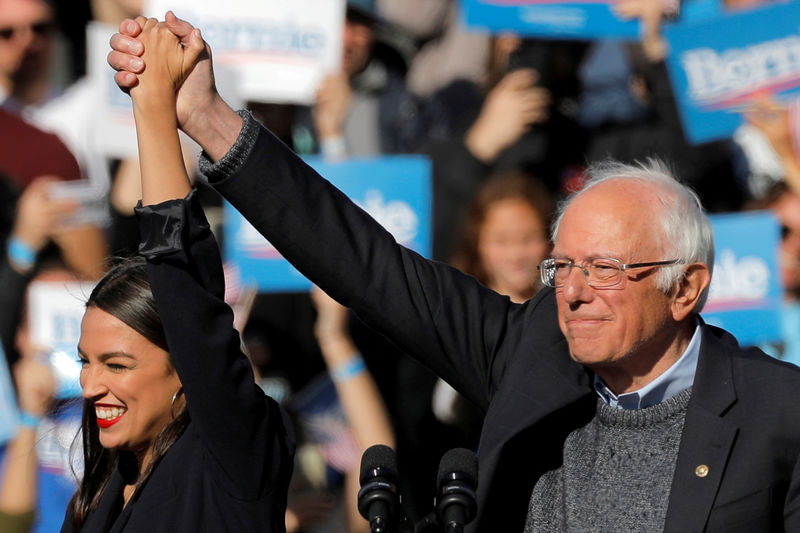By John Whitesides
WASHINGTON (Reuters) - Democratic presidential candidate Bernie Sanders, a longtime proponent of legalized marijuana, promised on Thursday that in his first 100 days in the White House he would issue an executive order directing the drug be removed from the list of controlled federal substances.
Sanders, a U.S. senator from Vermont, unveiled a legalization plan that would also vacate the records of those convicted of marijuana-related crimes, and invest tax revenue from legal sales of the drug in communities hit hardest by the enforcement of marijuana laws.
"We're going to legalize marijuana and end the horrifically destructive war on drugs," Sanders said in a statement released with his plan. "It has disproportionately targeted people of color and ruined the lives of millions of Americans."
Sanders is one of 18 contenders seeking the Democratic nomination to challenge Republican President Donald Trump in the November 2020 election. Most of the Democratic candidates have embraced some form of marijuana legalization, or at least decriminalization, as public opinion has shifted in recent years to majority support.
A Gallup poll earlier this month found two of every three Americans support marijuana legalization. Eleven states and the District of Columbia now allow legal recreational use, and more than 30 states have legalized it for medical use.
During his losing 2016 White House bid, Sanders became the first high-profile presidential candidate to support legalizing marijuana. The plan released on Thursday fleshed out some of the details of his approach.
As president, according to the plan, Sanders would issue an executive order directing his attorney general to declassify marijuana as a controlled substance. It is listed in the same category as heroin with drugs the federal government deems have no currently accepted medical use and a high potential for abuse.
Sanders also would introduce legislation in the U.S. Congress to make legalization permanent.
Sanders would create programs to invest in minority communities his campaign said have been disproportionately hit by enforcement of marijuana laws.
Citing statistics showing black Americans are nearly four times more likely to be arrested for possession, despite similar rates of marijuana use across the races, the plan would create a $20 billion program within the Minority Business Development Agency to provide business grants to entrepreneurs of color.
It also would create a $10 billion U.S. Department of Agriculture program to aid marijuana growing operations in communities with high arrest rates to ensure "the people victimized by criminalization see the direct benefits," the campaign said.
The plan includes incentives to ensure the marijuana industry is not overtaken by big tobacco companies.
